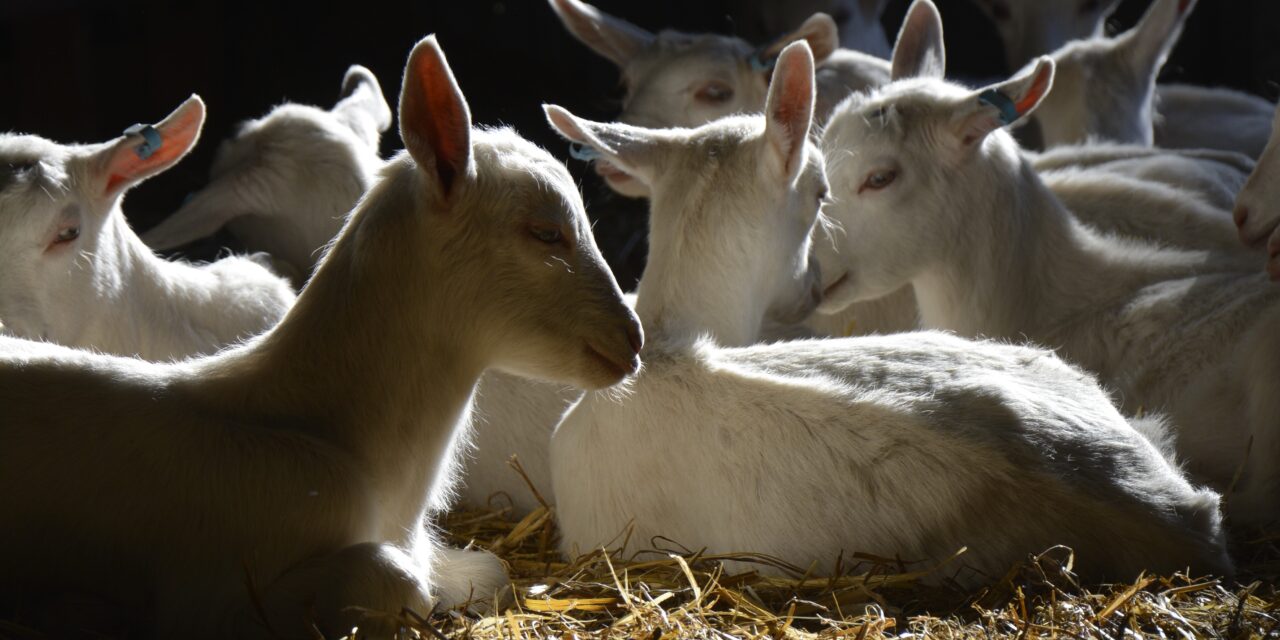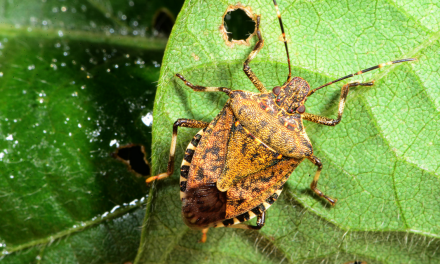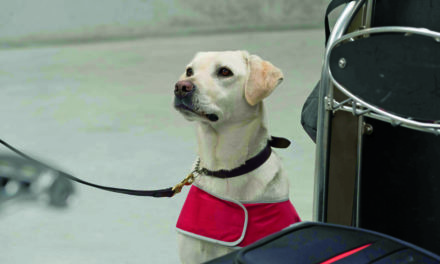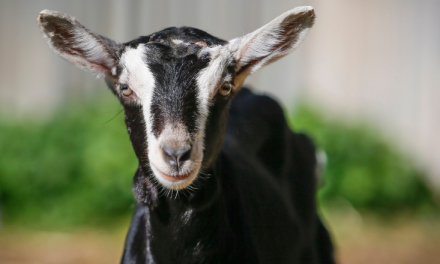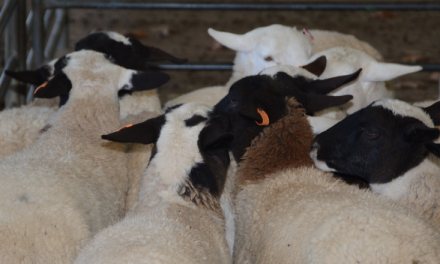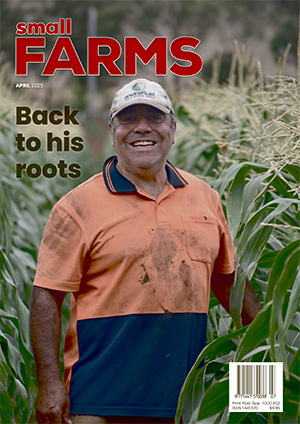A scientific and pragmatic approach to goat cheese production has seen a family in north-east Victoria receive government funding to help extend their enterprise. ANDY WILSON has the story.
Moussa Taouk and Dr Victoire de Raphelis-Soissan raise and milk Saanen goats in 10 identical neat-as-a-pin paddocks, which they took a year to construct with high tech electric fencing, at Winton near Benalla.
The rotation paddocks at Little Cedar goat cheese farm boast rich green swards of rye-grass and await the 26 lactating goats and their small army of kids as they change paddocks each fortnight.
However, the bucolic scene of the couple herding their goats to the milking shed with the sun on their backs is not belied by any naïve rural daydream.
The academic experience that both have brought to their venture has made it a viable reality.
Moussa is a former mining engineer and has focused on planning every nuance of the business and constructing custom-made facilities, including the milking platform and precision-proud fencing.
“This year is our test year,” he said in late 2023.
“If we don’t make our budget this year then we won’t be viable, but so far, I have a budget and we are meeting our budget.
“That’s what I use from my engineering background — practical stuff — and I love when I see a plan coming to fruition.”
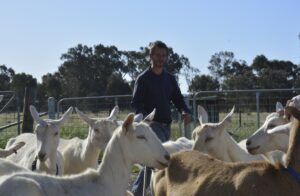
Moussa Taouk herds the farm’s goats in from one of the ten paddocks that he used his engineering skills to design with precision.
The $6800 grant from Agriculture Victoria will be used to double the size of their cheesemaking room, from which they currently produce more than five varieties of cheese and a yoghurt.
Victoire studied the biology of sheep rumen, which gave her the knowledge to focus on goat diet and metabolism to make good cheese.
The funding includes a $1800 scholarship for Victoire to study a soft and lactic cheese course offered by The Cheese School in Castlemaine under the tutelage of world-renowned cheese maker Ivan Larcher.
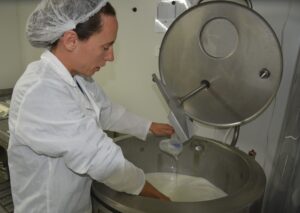
Dr Victoire de Raphelis-Soissan adding rennet enzyme to a batch of goat milk. The business produces five varieties of cheese and a yoghurt.
“The funding is to lead our transition from a hobby to a business and make this sustainable both financially and within nature and keep all of it on a family-sized scale,” Victoire said over the raucous din of a shed full of bleating kids.
“I will be studying further as well how to successfully ripen the cheese because when there’s ripening behind them it gets very precise.
“Which flavour you are enhancing depends on what cultures you have there; it can get a bit complex.”
Moussa milked by hand a fraction of the goats to offload any extra milk before they were separated from their offspring to build up their udders overnight.
Victoire said expansion of the goat herd was not necessary for the aim of the business.
“It’s not the number of goats too much that needs attention, but how much milk they produce, so we concentrate on that rather than just build up numbers,” she said.
“We have to really understand what’s happening in the milk and to have the right conditions that we want, because the characteristics of the milk change through time.”
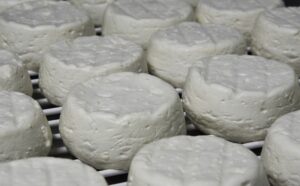
Little Cedar goat cheese farm produces five varieties of cheese and a yoghurt.
The expansion of the cheese-making room will double the size of a storage cool room and include an 11℃ maturing room.
“This will give an added value to what we do.”
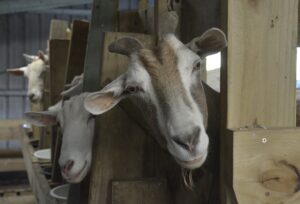
Self-appointed matriarch of the herd ‘Forest’ takes first place in the queue for milking.

